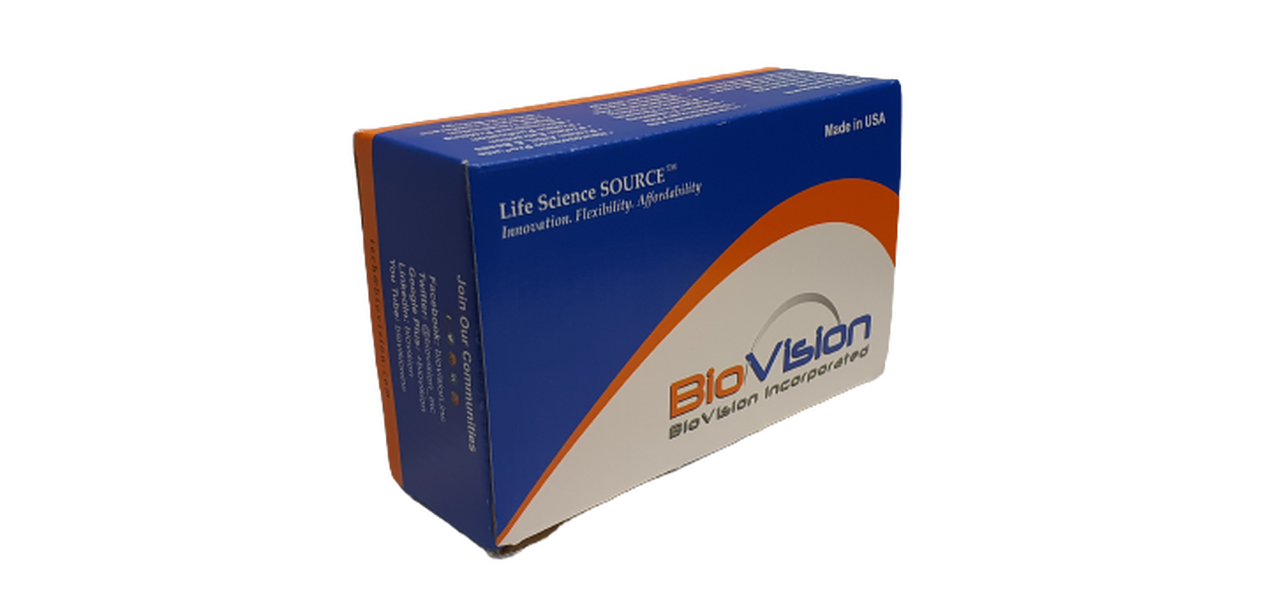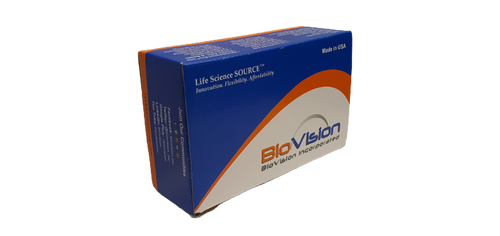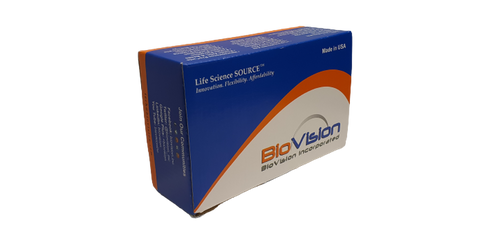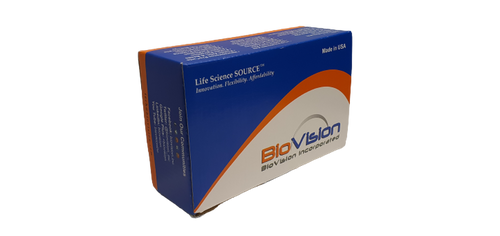Product Description
Biovision | E4901 | SARS-CoV-2 IgG ELISA Kit DataSheet
Coronaviruses are large, lipid-enveloped, single-stranded RNA viruses known to infect a wide array of hosts, including humans, bats, mice and other mammals. Amongst the seven known human coronaviruses, MERS-CoV, SARS-CoV-1 and SARS-CoV-2 are the most pathogenic, causing severe, potentially fatal respiratory and cardiovascular symptoms. The emergence of the novel SARS-CoV-2 virus, the cause of the ongoing Coronavirus Disease 2019 (COVID-19) pandemic, has proven to be the greatest public health crisis of the 21st Century. SARS-CoV-2 has a ~30 kb genome that encodes 29 proteins, including 4 structural proteins used in virion assembly, namely the Envelope (E), Membrane (M), Nucleocapsid (N) and Spike (S) proteins. The transmembrane Spike protein is a glycoprotein responsible for host-cell binding and viral entry. It is a heterotrimeric complex with two unique subunits. The S1 subunit contains the Receptor Binding Domain (RBD), which interacts with Angiotensin-Converting Enzyme 2 (ACE2) as a host-cell receptor, whereas the S2 subunit mediates viral membrane fusion. The S protein is highly immunogenic, with seroconversion in infected individuals typically detected between 5-21 days following the onset of symptoms. BioVision’s SARS-CoV-2 IgG ELISA Kit is an enzyme-linked immunosorbent assay intended for identifying the immune response to SARS-CoV-2 infection. The assay uses the spike protein S1 subunit as bait to capture anti-SARS-CoV-2 antibodies in diluted plasma or serum samples. Subsequent reaction with an enzyme-labeled anti-human-IgG conjugate and a colorimetric substrate generates color, which is proportional to the amount of anti-S1 antibodies. The presence of anti-SARS-CoV-2 S1 antibodies (IgG) is determined by comparing the OD450 nm reading of the sample to the OD450 nm reading of the negative control serum. A positive reaction suggests prior SARS-CoV-2 infection that began ≥14 days ago. Positive control serum containing a recombinant human monoclonal anti-SARS-CoV-2 S1 antibody is included in the kit for validation. The assay is a quick, easy and accurate method of indicating recent or prior SARS-CoV-2 infection that does not require collection or handling of infectious virus. This kit is a valuable tool to study the COVID-19 epidemiology, prevalence and morbidity.
Alternate Name :
Tag Line : ELISA kit for identifying the immune response to SARS-CoV-2 infection
Summary : BioVision’s SARS-CoV-2 IgG ELISA Kit is an enzyme-linked immunosorbent assay intended for identifying the immune response to SARS-CoV-2 infection. The assay uses the spike protein S1 subunit as bait to capture anti-SARS-CoV-2 antibodies in diluted plasma or serum samples. Subsequent reaction with an enzyme-labeled anti-human-IgG conjugate and a colorimetric substrate generates color, which is proportional to the amount of anti-S1 antibodies. The presence of anti-SARS-CoV-2 S1 antibodies (IgG) is determined by comparing the OD450 nm reading of the sample to the OD450 nm reading of the negative control serum. A positive reaction suggests prior SARS-CoV-2 infection that began ≥14 days ago. Positive control serum containing a recombinant human monoclonal anti-SARS-CoV-2 S1 antibody is included in the kit for validation. The assay is a quick, easy and accurate method of indicating recent or prior SARS-CoV-2 infection that does not require collection or handling of infectious virus. This kit is a valuable tool to study the COVID-19 epidemiology, prevalence and morbidity.
Detection Method : Absorbance at 450 nm
Sample Type : Human Serum or Plasma (Heparin or EDTA)
Species Reactivity : Human
Applications : Screening of SARS-CoV-2 infection rate in a given population,Study of epidemiology, prevalence and morbidity of COVID-19,Determination of prior SARS-CoV-2 infection
Features and Benefits : A valuable tool to study the COVID-19 epidemiology, prevalence and morbidity,A quick, easy and accurate method of indicating recent or prior SARS-CoV-2 infection,The kit does not require collection or handling of infectious virus
 Euro
Euro
 USD
USD
 British Pound
British Pound
 NULL
NULL












